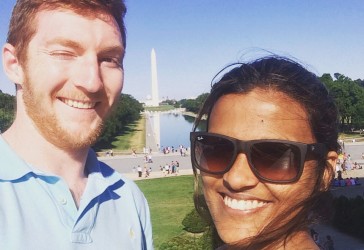
About me
I was born in India but I spent most of my life growing up in Singapore. When I was 18, I decided I wanted to do psychology so that I can break into a career in policy making. Governments everywhere are realising that there's quite a lot of potential for behavioural insights in writing policy. It was quite hard convincing my parents who wanted me to do medicine, but now they're quite on board with it. I applied to a lot of programs for psychology in both the UK and US, but it was only after I got into Cambridge that I realised what a good fit PBS was for me. Most psychology programs in this country have a clinical focus, but PBS gives you breadth and depth across many other disciplines as well.
Psychological and Behavioural Sciences
It's quite a mouthful, but it's necessary to illustrate the diversity of options in this course. In my (almost) three years, I have taken papers in social anthropology, sociology, social psychology, developmental psychology, cognitive psychology, history and philosophy of science, experimental psychology and neuroscience. While I personally took a broad liberal-artsy type approach with a little bit of everything, you have a lot of leeway in choosing how much or little biology you take.
A week for me
The PBS schedule varies widely from person to person, just because of how varied the papers are. If you borrow a paper from the Natural Sciences, you could have 2 or 3 lectures a week and an essay. But if you take something like social anthropology or sociology, you could have one lecture a week and perhaps an essay every other week. It might seem like less work but the time has to be spent wisely, motivating yourself to do the reading. The workload will always be about the same, but there is plenty of time for socialising and clubs. I've tried a different combination of a sport and club every year. Currently, I do boxing with CUABC and I am an editor for the Science and Technology section of the Cambridge Globalist. I still manage to find time to go out at least once a week for a drink at a pub with friends or a formal hall.
Gateway
Not only are the sessions useful, especially in the later years, the College makes use of its networks to provide students with internships. Medwards has really shaped my career, because I made full use of all the internships in health management they had. While initially I didn't think it would be something I would focus my career on, I realise now that the College has allowed me to have a working understanding of a system many find complicated. It has prepared me for a possible high-powered career in consulting or international health before I've even graduated. It has made me see how relevant behavioural insights are in health policy. The Gateway program has opened doors for me, not just with my CV, but through my self-confidence in what I am capable of. It has really made me dream bigger.
Supervision system
Murray Edwards gives you a real advantage because they do their best to make their supervisions all-female. It gave me quite a lot of room to speak and make full use of each supervision. I always find that it's best to write down questions that you might have at the end of the essay - it gives the supervisor some time to think about them and respond during the supervision.
Support from the College
The tutors have gone out of their way to help me in (many!) sticky situations. They can be your personal advocates and you can always count on them - it's a powerful tool to have someone in authority speak on your behalf. I've also received many grants from the college which have helped me afford internships, language and economics courses.
I've found the Porters here incredibly helpful. If it's your first time away from home, it can be daunting to have to sort everything out on your own - laundry, keys, student cards, parcels. The Porters help you out when you need them and never make you feel judged or indebted.
Interview tips
I had an interview and an assessment with a 30 min essay. I tried to make my way through the reading list on the PBS website, but I found it hard to focus on what was important. So instead I watched the authors of the books talk about their work on iTunes U. It helped quite a lot for the essay part of the test, which had a PBS-specific question.
As for my interview, they asked me some questions about biology, which I hadn't prepared for and remembered only vaguely. However, the interviewer was quite kind and gave me little hints to work out what they answer might be. It felt like his objective was to make me say one or two keywords, and then he could move on. If you don't know something or don't remember, instead of saying 'I completely forgot', it's better to say, 'It's been a while, but I'll take a crack at it'.